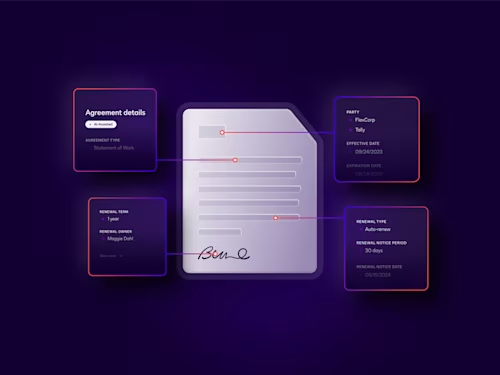
How Leading Behavioral Health Providers Transitioned to Telehealth
Docusign customers have been early leaders in teletherapy and virtual care, adapting quickly to COVID-19 challenges and continuing to offer patients treatment.

Before the COVID-19 pandemic early this year, the American healthcare industry was in the middle of another critical health battle. Addiction and substance abuse have been increasing in recent decades, requiring patients to combine medication with in-person counseling either one-on-one with a specialist or as part of a group session. With extensive stay-at-home and shelter-in-place orders, it’s become more difficult for those with substance use disorders to get the medication and human interaction they need to complete their recovery.
These patients are running into regulatory hurdles getting take-home medications and are facing obstacles transitioning mental health services to a video platform (teletherapy). Addiction is often considered a disease of isolation and forced social distancing can slow or stop recovery for some patients. Offering a virtual option for individuals struggling with mental health or addiction problems can help patients continue recovering remotely. Instrumental to making teletherapy work is ensuring that all of the mandatory documents, HIPAA releases and patient consent forms are prepared, signed and processed compliantly before teletherapy treatment can begin. Many of these documents are critical to maintaining accurate patient records so that the entire care team can effectively coordinate remotely.
A couple of Docusign customers have been early leaders in teletherapy and virtual care, adapting quickly to COVID-19 challenges and continuing to offer patients treatment. In this post, we’ll share the stories of those innovators. Other healthcare providers can use these stories as inspiration and guidance to continue treating the patients who need support the most.
Heart-Centered Counseling shifts focus to teletherapy
Colorado’s Heart-Centered Counseling offers a team of counselors who provide outpatient mental health services across 20 offices. At the start of the year, their team was searching for a HIPAA-compliant e-signature platform to assist with completing a range of documents: consent forms, intake forms, financial forms, internal paperwork and more.
Docusign eSignature has been crucial to their success in this new business environment. The Heart-Centered Counseling team created templates for standard documents and standardized those templates throughout all 20 locations. Starting from those standard documents, the team can quickly collect signatures in full compliance with ESIGN, UETA and HIPAA. With eight organizational wide templates, the team sent more than 6,000 envelopes in the first two months after making the move to Docusign.
“I evaluated many platforms and Docusign was the most robust and well-supported,” said Douglas Blocksma, Heart-Centered Counseling site supervisor. “We are so glad to have had Docusign already in place when the COVID-19 pandemic hit.”
The onset of COVID-19 forced the team to shift their sessions to teletherapy, and they needed the flexibility to shift operations to a remote environment. To meet these new needs, Heart-Centered Counseling has added more than 200 providers to their network, utilizing Docusign University’s guides and videos to save valuable time onboarding new providers on remote technology as the organization transitioned to teletherapy.
A large healthcare provider moves to virtual care
One healthcare organization, the world's leading nonprofit focused on individuals, families and communities affected by drug addiction, is a major provider of substance abuse treatment and mental health services. To help more patients on their paths to recovery, they set a goal of expanding virtual services to all 50 U.S. states in the next three years. Achieving that goal meant establishing an electronic signature platform that would scale across the nation and integrate with Cerner, its electronic medical records system. The project ran into further complications with the onset of the COVID-19 pandemic, which made digital consent documents an urgent priority.
The organization acted immediately to adopt Docusign eSignature for treating patients via virtual care sessions. They were already using Docusign for HR paperwork but quickly expanded their use to launching its teletherapy services. In only a week, the team trained 100+ staff members on Docusign, allowing them to provide virtual care in 7 states. In only the first three weeks, more than 5000 envelopes were sent using Docusign. Since then, care has expanded to 20+ states, with plans to grow to all 50 in the next 12-18 months.
“I honestly can't imagine there would be another solution that would be as easy to use, implement and that would meet our needs like Docusign has,” said the organization’s director of clinical applications. “Docusign has been an absolute lifesaver for us in these times.”
Today, every staff member has access to preconfigured templates for necessary digital forms. All completed documents are downloaded and stored to a corresponding patient record in Cerner. When the integration between Docusign and Cerner is completed this summer, the organization will have a touchless transfer of documents from patients directly into Cerner.
To learn more about how your team can provide virtual care for patients, check out Docusign Agreement Cloud for Healthcare. Docusign offers better remote experience for members, plans and payers without compromising compliance, security or privacy.
Related posts
Docusign IAM is the agreement platform your business needs


